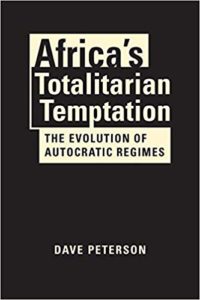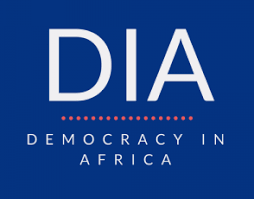For Africa to accomplish the ambitious but laudable Sustainable Development Goals, strong institutions and good governance must be in place to ensure inclusion, democracy, and security, according to Brookings’ Foresight Africa.
It is imperative that countries entrench mechanisms that promote constitutionalism, accountability, democracy, and good governance if Africa is to achieve its development goals, argues John Mukum Mbaku, Nonresident Senior Fellow in Global Economy and Development, at Brookings’ Africa Growth Initiative.
 Among the seven key aspirations listed in Agenda 2063: The Africa We Want—the African Union’s (AU) shared 50-year development and transformation program for realizing the full potential of the continent—one stands out in its interconnectedness: “[a]n Africa of good governance, democracy, respect for human rights, justice and the rule of law” [emphasis added], he writes:
Among the seven key aspirations listed in Agenda 2063: The Africa We Want—the African Union’s (AU) shared 50-year development and transformation program for realizing the full potential of the continent—one stands out in its interconnectedness: “[a]n Africa of good governance, democracy, respect for human rights, justice and the rule of law” [emphasis added], he writes:
Many African countries have undertaken institutional reforms that have significantly changed their governance architectures and put in place a new set of leaders. Since the early 1990s, for example, Ghana has diligently undertaken governance reforms, including the design and adoption of new democratic constitution…More broadly, over the past decade, Kenya, Morocco, and Côte d’Ivoire have led the way. The Ibrahim Index of African Governance indicates that between 2008 and 2017, these countries experienced significant improvements, particularly in overall governance.
“But Africa has a long way to go: Too many countries have not yet achieved the type of reforms that can prevent dictatorship, corruption, and economic decline,” Mbaku adds. “Due to continued sectarian violence, weak and ineffective leadership, and lack of political will, countries like the Central African Republic, Eritrea, Somalia, and South Sudan remain saddled by poor-functioning governance structures.”
 The appeal of the totalitarian model is waning in Africa, says Dave Peterson, senior director of the Africa Program at the National Endowment for Democracy, and author of Africa’s Totalitarian Temptation: The Evolution of Autocratic Regimes.
The appeal of the totalitarian model is waning in Africa, says Dave Peterson, senior director of the Africa Program at the National Endowment for Democracy, and author of Africa’s Totalitarian Temptation: The Evolution of Autocratic Regimes.
Ethiopia and Sudan demonstrate that, whatever appeal the totalitarian model may have, both the dissidents and the masses will persist in demanding freedom, he writes for Nic Cheeseman’s Democracy in Africa blog. It is a lesson for the entire world. It may take many years, even decades, but democracy’s resilience in the face of the global resurgence of autocracy lends reason for hope. Freedom is better than tyranny, and the struggle will continue.
After decades of dictatorship, Sudan’s unlikely transition to democracy may finally be happening, analysts suggest.
Africa’s dinosaur leaders are members of an increasingly small and unstable club, says Dr Alex Vines OBE, Director of the Africa Program at Chatham House. What recent political transitions have in common is that honeymoons are short and that, whether they are led by interim administrations or elected leaders, they need to deliver political and socioeconomic improvements to succeed, but have inherited shambolic economies. Their success depends on accountable political leadership and domestic and international support.
 In the latest edition of Straight Talk Africa host Shaka Ssali (above) reviews the major political developments in Africa that marked 2019 and looks ahead at issues that will impact the continent in 2020, VOA News reports:
In the latest edition of Straight Talk Africa host Shaka Ssali (above) reviews the major political developments in Africa that marked 2019 and looks ahead at issues that will impact the continent in 2020, VOA News reports:
His guests are Catherine Kanabahita Guma, a Reagan-Fascell Fellow at the National Endowment for Democracy and Executive Director of the Development Network of Indigenous Voluntary Associations (DENIVA), Richmond Danso, Doctoral Candidate and Teaching Associate at the Department of Political Science of Howard University, Yetunde Odugbesan-Omede, Professor of Global Affairs and Politics at Farmingdale State College and Joel Kibazo, Former Senior Executive at the African Development Bank.
The Africa Security Initiative at Brookings recently hosted a panel on trends in human rights — defined as the legal protections and rights of persons — across the African continent, writes Brookings’ Adam Twardowski. Senior Fellow Michael O’Hanlon opened the discussion by acknowledging the broad scope of the topic, given the number of countries on the continent. In addition to highlighting key human rights issues in Africa, the panelists discussed global trends in the fight for human rights, and the role of NGOs and governmental institutions in advancing the protection of these rights within the continent.







